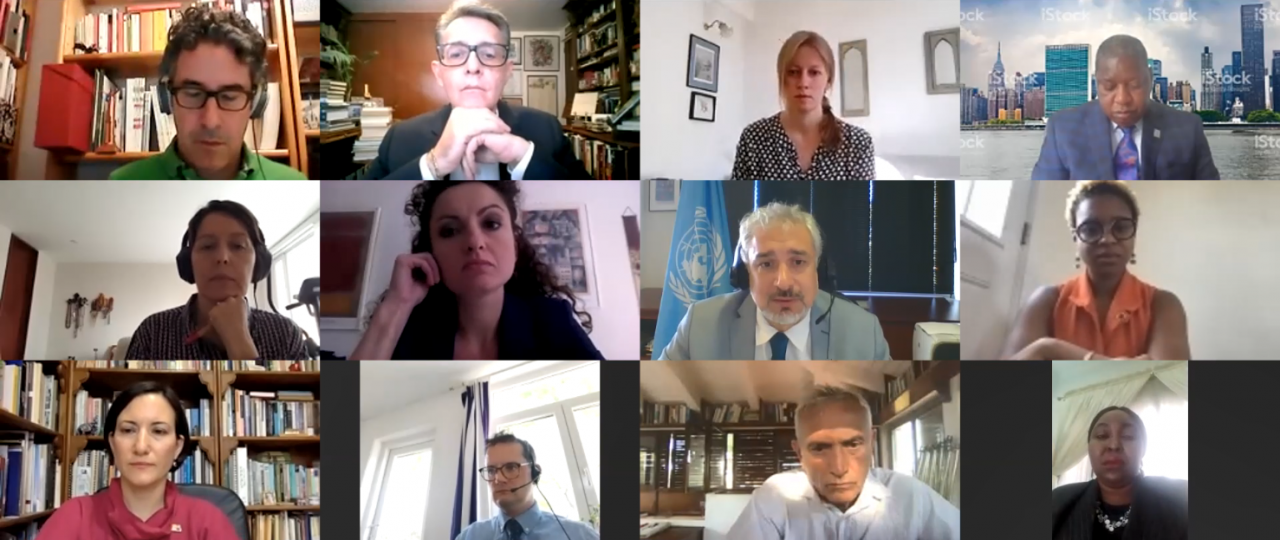UN, Government and Civil Society Underline Need to Include Culture in post-COVID-19 Planning
20 July 2020

IFLA, alongside partners from the Culture 2030 Goal Coalition, organised a successful side-event at the UN High-Level Political Forum, focusing on culture as an accelerator of development. Victoria Okojie, representing IFLA, underlined the particular contribution that libraries can make.
2020 marks an important year in the process of delivering the Sustainable Development Goals. With just ten years to go to achieve them, and significant additional challenges brought by COVID-19, there is a pressing need to seize all opportunities for strong, equitable and sustainable growth.
The Culture 2030 Goal campaign, of which IFLA is a core member, has therefore been working to build awareness of the need to draw on culture, and cultural actors and institutions, including libraries.
These, we have argued, represent powerful accelerators, unlocking progress in many different areas.
In particular now, with societies needing to show resilience and creativity in responding to COVID-19, and preparing for the recovery, culture can have a key role. This argument is at the core of our statement on Culture and COVID-19.
Following the very welcome endorsement of the statement by the President of the 74th UN General Assembly, HE Mr Tijjani Muhammad-Bande, IFLA participated in a side-event at the UN High Level Political Forum on 13 July 2020.
Bringing together speakers from UNESCO, the World Health Organization, Italy, Canada and a range of major networks, this served to underline the importance of culture, and explore how to make it more central to policy-making now and into the future.
HE Mr Jerobeam Shaanika, representing the President of the General Assembly, stressed: ‘Let there be no mistake, incorporating culture into COVID-19 recovery plans can thus help accelerate 2030 Agenda implementation’.
He noted the particular role of libraries: ‘
Libraries… are prized repositories of knowledge, and experience, passed through generations, which strengthen humanity’s capacity to overcome adversity and envisage a better future.
UNESCO Assistant Director General Ernesto Ottone added:
As many countries experience confinement, the vital necessity of culture for social cohesion, education and wellbeing was particularly brought to light, and that’s something that everybody is recognising.
Ilaria Ragnoni, Spokesperson of the Mission of Italy to the United Nations, undelined:
Culture, education and innovation must be at the core of our recovery strategies if we aim at building back better.
Representing IFLA, Victoria Okojie, former Board Member, set out a number of key recommendations on how to do this:
First of all, we need governments at all levels to see culture and cultural institutions as both a source of vital information and insights to inform policy, as well as a partner in delivering its policy decisions. […]
Secondly, we need to include cultural issues in our calculations and indicator bases, as UNESCO is already doing.
[…] Thirdly, we need strong signals from the highest levels, such as from the president of the United Nations General Assembly, in order to show the way.
And finally, of course, we need to work without our own fields to build understanding of the potential libraries have to support development and help realise this.
We are grateful to all the participants in the session for their support, including all those quoted above, and also Dr Kirsty Duncan, Member of the Canadian Parliament, Dr Daisy Fancourt, UCL and WHO Europe, José Alfonso Suárez del Real, Co-President of the UCLG Committee on Culture, Pierre Claver Mabiala, President, Arterial Network, Robert Manchin, Culture Action Europe, Maria Claudia Parias Durán, Member of the Board, International Music Council, and Nikiesha Hamilton, Brooklyn Museum. Particular thanks go to Jordi Pascual, Coordinator, UCLG Committee on Culture, and Ege Yildirim, SDGs Focal Point, ICOMOS.
Building on the success of this event, IFLA and its partners will continue to work to build understanding and support for stronger inclusion of culture in plans both for recovery from COVID-19, and long-term development.
You can watch the recording of the event again on YouTube, and find out more about IFLA’s work on libraries and development on our dedicated page.